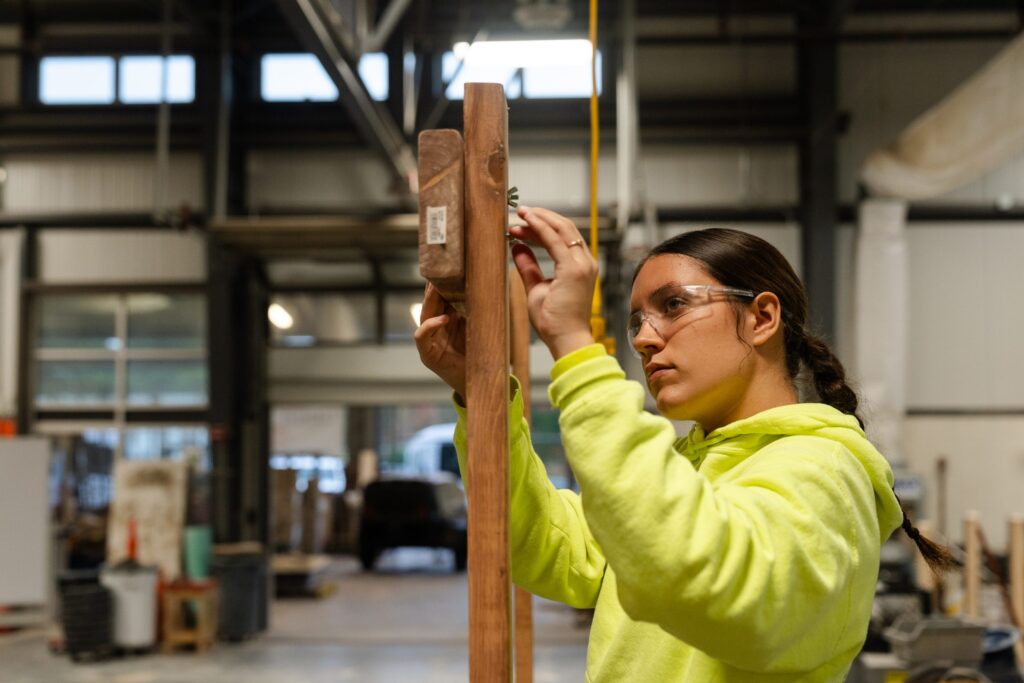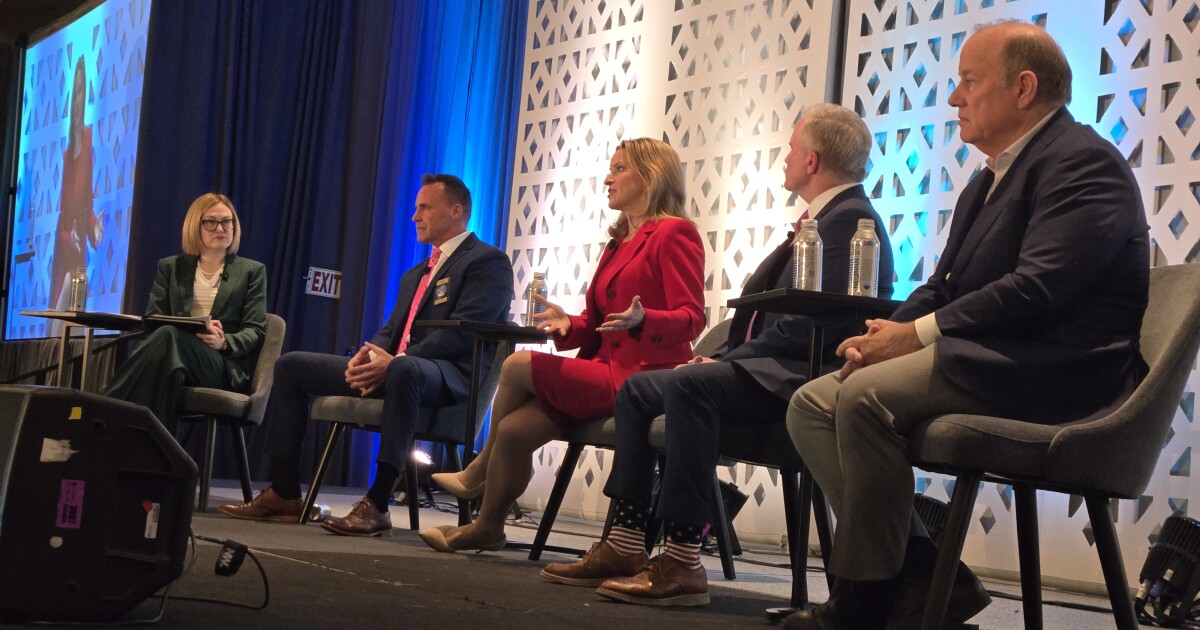DANVERS, Mass. — Rain doesn’t deter students at Essex Tech North Shore Agricultural & Technical High School from working on a vegetable wash station. Adorned in work boots and hard hats, they lay wire mesh, preparing for a concrete pour under the guidance of Laborers’ Local 22 member Chris Moore. A young woman’s hard hat features a sticker declaring, “Hard hat hair don’t care.”
Essex Tech’s construction craft laborers program, co-led by Moore, is among the few high school initiatives in Massachusetts co-sponsored by a trade union. The program introduces students to union norms early, with two Local 22 members as teachers and financial backing from the New England Laborers’ Training Academy. Seniors attend union meetings, and after graduation, many join union apprenticeships, fast-tracking to a journeyman’s license. Junior Owen Paniagua, 16, calls it “a golden ticket to job security,” having learned skills from carpentry to masonry.
“We feel as laborers that we should be in the schools,” said Lou Mandarini Jr., retired business manager of Local 22. “This is where your workforce is … If you treat young kids with respect, once they buy into your program, they are dead loyal.”

Several states like Massachusetts and Maryland have seen unions form partnerships with high school CTE programs, investing their resources. There’s a rise in training alliances with community colleges too. A 2023 AFL-CIO brief emphasized that “No one knows better how to do a job than someone who does the job.”
Progress has been slow, and it’s uncertain if existing partnerships will lead to widespread changes, said Taylor White of New America. “Schools and unions speak very different languages,” she added. This gap highlights a need for more collaborative efforts, especially between employers and schools.
Historically, trade unions have been insular, often excluding women and minorities. In Milwaukee, apprenticeship criteria were barriers for many. Lauren Baker, a former education director, worked to diversify the field by removing high school diploma requirements from union apprenticeship programs. However, many tests still favored those with familial connections to trades, maintaining a predominantly white male workforce.
Travis Watson, commissioner of the Boston Employment Commission, noted persistent racial biases in Boston-area construction unions. Some unions are adjusting to be more inclusive, but challenges remain. Danyson Tavares of YouthBuild Boston mentioned the need to build better relationships with electrical unions due to workforce demands.
Efforts to form school partnerships have yielded varied results. The Massachusetts laborers’ initiative, started two decades ago by Mandarini, has expanded to eight schools. Local 22 wants to be in every vocational school in New England, aiming to secure the future workforce.
In Louisiana, the company CapturePoint facilitated a partnership with the United Association of Journeymen and Apprentices, establishing a new welding program in a high school. Students benefit from shared resources and can bypass the first apprenticeship year if joining the union post-graduation.
Despite enthusiasm, broader expansion faces obstacles. Massachusetts vocational schools have become more selective, often excluding low-income students. The laborers have yet to partner with Boston’s Madison Park Technical Vocational High School, which serves a predominantly Black and Hispanic student body.
Mandarini acknowledges the difficulty in partnering with some schools but remains optimistic about expanding. “Every single trade should be in (Madison Park),” he said.
Long-term success hinges on unions adapting to collaborate with schools and embracing diversity. Partnerships could rejuvenate unions and appeal to young, pro-union generations. Capitalizing on this support is crucial to future growth, said White.
—
Read More Kitchen Table News










